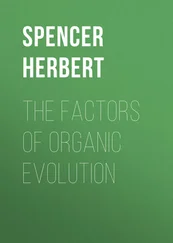But the chief errors of these comparisons made by Plato and Hobbes, lie much deeper. Both thinkers assume that the organization of a society is comparable, not simply to the organization of a living body in general, but to the organization of the human body in particular. There is no warrant whatever for assuming this. It is in no way implied by the evidence; and is simply one of those fancies which we commonly find mixed up with the truths of early speculation. Still more erroneous are the two conceptions in this, that they construe a society as an artificial structure. Plato's model republic—his ideal of a healthful body-politic—is to be consciously put together by men, just as a watch might be; and Plato manifestly thinks of societies in general as thus originated. Quite specifically does Hobbes express a like view. "For by art ," he says, "is created that great Leviathan called a Commonwealth." And he even goes so far as to compare the supposed social contract, from which a society suddenly originates, to the creation of a man by the divine fiat. Thus they both fall into the extreme inconsistency of considering a community as similar in structure to a human being, and yet as produced in the same way as an artificial mechanism—in nature, an organism; in history, a machine.
Notwithstanding errors, however, these speculations have considerable significance. That such likenesses, crudely as they are thought out, should have been alleged by Plato and Hobbes and others, is a reason for suspecting that some analogy exists. The untenableness of the particular parallelisms above instanced, is no ground for denying an essential parallelism; since early ideas are usually but vague adumbrations of the truth. Lacking the great generalizations of biology, it was, as we have said, impossible to trace out the real relations of social organizations to organizations of another order. We propose here to show what are the analogies which modern science discloses.
Let us set out by succinctly stating the points of similarity and the points of difference. Societies agree with individual organisms in four conspicuous peculiarities:—
1. That commencing as small aggregations, they insensibly augment in mass: some of them eventually reaching ten thousand times what they originally were.
2. That while at first so simple in structure as to be considered structureless, they assume, in the course of their growth, a continually-increasing complexity of structure.
3. That though in their early, undeveloped states, there exists in them scarcely any mutual dependence of parts, their parts gradually acquire a mutual dependence; which becomes at last so great, that the activity and life of each part is made possible only by the activity and life of the rest.
4. That the life of a society is independent of, and far more prolonged than, the lives of any of its component units; who are severally born, grow, work, reproduce, and die, while the body-politic composed of them survives generation after generation, increasing in mass, in completeness of structure, and in functional activity.
These four parallelisms will appear the more significant the more we contemplate them. While the points specified, are points in which societies agree with individual organisms, they are also points in which individual organisms agree with one another, and disagree with all things else. In the course of its existence, every plant and animal increases in mass, in a way not paralleled by inorganic objects: even such inorganic objects as crystals, which arise by growth, show us no such definite relation between growth and existence as organisms do. The orderly progress from simplicity to complexity, displayed by bodies-politic in common with living bodies, is a characteristic which distinguishes living bodies from the inanimate bodies amid which they move. That functional dependence of parts, which is scarcely more manifest in animals than in nations, has no counterpart elsewhere. And in no aggregate except an organic or a social one, is there a perpetual removal and replacement of parts, joined with a continued integrity of the whole. Moreover, societies and organisms are not only alike in these peculiarities, in which they are unlike all other things; but the highest societies, like the highest organisms, exhibit them in the greatest degree. We see that the lowest animals do not increase to anything like the sizes of the higher ones; and, similarly, we see that aboriginal societies are comparatively limited in their growths. In complexity, our large civilized nations as much exceed primitive savage tribes, as a mammal does a zoophyte. Simple communities, like simple creatures, have so little mutual dependence of parts, that mutilation or subdivision causes but little inconvenience; but from complex communities, as from complex creatures, you cannot remove any considerable organ without producing great disturbance or death of the rest. And in societies of low type, as in inferior animals, the life of the aggregate, often cut short by division or dissolution, exceeds in length the lives of the component units, very far less than in civilized communities and superior animals; which outlive many generations of their component units.
On the other hand, the leading differences between societies and individual organisms are these:—
1. That societies have no specific external forms. This, however, is a point of contrast which loses much of its importance, when we remember that throughout the vegetal kingdom, as well as in some lower divisions of the animal kingdom, the forms are often very indefinite—definiteness being rather the exception than the rule; and that they are manifestly in part determined by surrounding physical circumstances, as the forms of societies are. If, too, it should eventually be shown, as we believe it will, that the form of every species of organism has resulted from the average play of the external forces to which it has been subject during its evolution as a species; then, that the external forms of societies should depend, as they do, on surrounding conditions, will be a further point of community.
2. That though the living tissue whereof an individual organism consists, forms a continuous mass, the living elements of a society do not form a continuous mass; but are more or less widely dispersed over some portion of the Earth's surface. This, which at first sight appears to be an absolute distinction, is one which yet to a great extent fades when we contemplate all the facts. For, in the lower divisions of the animal and vegetal kingdoms, there are types of organization much more nearly allied, in this respect, to the organization of a society, than might be supposed—types in which the living units essentially composing the mass, are dispersed through an inert substance, that can scarcely be called living in the full sense of the word. It is thus with some of the Protococci and with the Nostoceæ , which exist as cells imbedded in a viscid matter. It is so, too, with the Thalassicollæ —bodies made up of differentiated parts, dispersed through an undifferentiated jelly. And throughout considerable portions of their bodies, some of the Acalephæ exhibit more or less this type of structure. Now this is very much the case with a society. For we must remember that though the men who make up a society are physically separate, and even scattered, yet the surface over which they are scattered is not one devoid of life, but is covered by life of a lower order which ministers to their life. The vegetation which clothes a country makes possible the animal life in that country; and only through its animal and vegetal products can such a country support a society. Hence the members of the body-politic are not to be regarded as separated by intervals of dead space, but as diffused through a space occupied by life of a lower order. In our conception of a social organism, we must include all that lower organic existence on which human existence, and therefore social existence, depend. And when we do this, we see that the citizens who make up a community may be considered as highly vitalized units surrounded by substances of lower vitality, from which they draw their nutriment: much as in the cases above instanced.
Читать дальше












